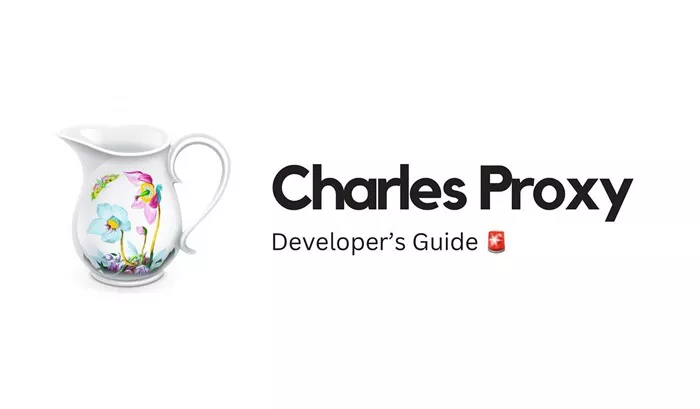Charles Proxy is a widely used HTTP proxy, monitor, and reverse proxy tool designed for developers, testers, and security experts. It helps in inspecting, modifying, and debugging network requests and responses between clients and servers. Charles acts as an intermediary, allowing users to capture and analyze traffic, making it an essential tool for web and mobile application development.
Key Features of Charles Proxy
Charles Proxy offers a rich set of features that make it highly valuable in different development and testing scenarios. Below are the core features of Charles Proxy:
HTTP and HTTPS Traffic Capture
Charles Proxy can record all HTTP and HTTPS traffic between a device and the internet. This feature provides visibility into the exact data exchanged, including headers, cookies, and content.
SSL Proxying
Charles supports SSL proxying, allowing users to view the contents of encrypted HTTPS traffic. This helps in debugging secure applications and identifying issues with certificates and encryption layers.
Bandwidth Throttling
Charles can simulate different internet conditions by throttling bandwidth. This helps developers understand how their applications behave under slow connections, packet loss, or latency.
Request and Response Editing
Charles allows users to modify requests and responses on the fly. This is particularly useful for testing edge cases, handling error scenarios, or bypassing certain client-side restrictions during development.
Repeat and Breakpoints
Users can repeat specific requests without needing to re-initiate actions on the client side. Breakpoints enable pausing and modifying requests or responses before they are sent or received.
AJAX and WebSocket Monitoring
Charles provides support for inspecting AJAX requests and WebSocket communications, making it suitable for modern web application debugging.
Session Recording and Export
Sessions can be recorded, saved, and exported for later analysis or sharing with team members. This is useful for documenting bugs or performance issues.
Map Local and Map Remote
With Map Local, users can serve local files in place of remote server responses. Map Remote allows redirection of requests to different servers or endpoints.
Cross-Platform Availability
Charles Proxy runs on Windows, macOS, and Linux, ensuring compatibility across major development environments.
Advantages of Using Charles Proxy
The use of Charles Proxy brings several significant benefits to developers, testers, and security analysts. Below are the primary advantages:
Improved Debugging Efficiency
Charles provides deep visibility into network traffic, making it easier to identify and resolve issues such as incorrect headers, faulty redirects, or malformed data.
Enhanced Security Testing
By inspecting encrypted traffic and simulating various conditions, Charles helps security professionals detect vulnerabilities and ensure that sensitive data is properly protected.
Better Application Performance
Bandwidth throttling and latency simulation assist in optimizing applications for diverse network environments, resulting in improved user experience across different conditions.
Time-Saving Automation
Features like request repetition, breakpoints, and session saving allow faster reproduction of bugs and testing of scenarios without repeating manual client-side actions.
Flexible Configuration
Charles Proxy offers customizable settings, allowing users to tailor the tool to specific project needs, including domain filtering, port configurations, and proxy chaining.
Common Use Cases of Charles Proxy
Charles Proxy is used across various industries and professions. Below are the most common use cases where Charles proves invaluable:
Mobile App Debugging
Developers use Charles Proxy to inspect API calls, monitor authentication tokens, and debug mobile applications on Android and iOS. By configuring devices to use Charles as a proxy, all mobile traffic can be examined in detail.
Web Development
Front-end and back-end developers utilize Charles to inspect browser traffic, analyze third-party API interactions, and troubleshoot client-server communication issues.
Quality Assurance and Testing
QA teams leverage Charles for manual and automated testing, including functional validation, performance testing under simulated conditions, and verification of security headers.
Security Audits
Security analysts employ Charles Proxy to intercept and analyze traffic for vulnerabilities, such as improper encryption, exposed tokens, or insecure cookies.
Educational and Training Purposes
Charles is used in training programs to teach network protocols, HTTP/HTTPS structures, and client-server interactions, providing hands-on experience with real traffic flows.
How Charles Proxy Works
Charles operates as a proxy server that sits between the client (such as a browser or app) and the internet. Once configured, all network requests pass through Charles, allowing it to capture, inspect, and modify traffic as needed. Users install Charles’s root certificate on their devices to decrypt HTTPS traffic securely. This setup ensures that the data captured by Charles remains accurate and complete for debugging or analysis.
Setting Up Charles Proxy
Setting up Charles is straightforward. Users install the software on their machine, configure their device or browser to use Charles as the proxy, and install the Charles root certificate to handle HTTPS traffic. After configuration, all traffic is visible in the Charles interface for detailed inspection and modification.
Limitations of Charles Proxy
While Charles Proxy is a powerful tool, it has limitations. It requires configuration that may be complex for beginners, especially regarding SSL proxying. Charles is primarily designed for development and testing, not large-scale network monitoring. Additionally, handling sensitive data requires caution, as improper use may expose confidential information.
Conclusion
Charles Proxy remains a trusted and essential tool for professionals involved in web and app development, testing, and security analysis. Its robust feature set, cross-platform support, and flexibility make it a preferred choice for understanding and managing network communications effectively. Whether used for debugging, performance tuning, or security auditing, Charles Proxy provides the capabilities necessary to ensure high-quality applications and secure network interactions.


